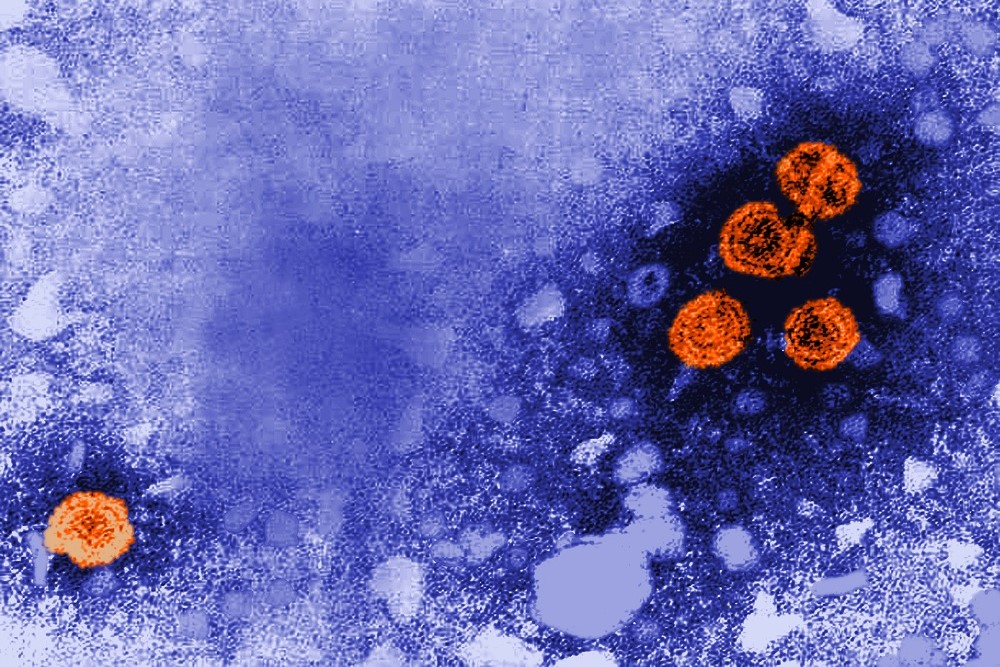
The quest for a cure for hepatitis B virus infection is leading antiviral drug developers to try new combinations of approved and experimental therapies. A combination effort between Assembly Biosciences and Antios Therapeutics is now over after the first patient dosed in a clinical trial developed cardiovascular problems that led the FDA to pause further testing.

With the Rise of AI, What IP Disputes in Healthcare Are Likely to Emerge?
Munck Wilson Mandala Partner Greg Howison shared his perspective on some of the legal ramifications around AI, IP, connected devices and the data they generate, in response to emailed questions.
Assembly disclosed the FDA clinical hold and the termination of the collaboration in a regulatory filing. Doylestown, Pennsylvania-based Antios, which is the party of record for the clinical trial, said Wednesday that it has observed no signs of safety problems associated with its drug, ATI-2173. Nevertheless, the FDA has asked for an independent cardiology assessment of the Antios molecule.
“We do not believe this to be a treatment-related adverse event; ATI-2173 was generally well-tolerated with no concerning safety signals,” Antios said in an emailed statement. “However, the investigator conducting the study believes the adverse event may have been treatment related to the triple combination regimen of ATI-2173, TDF and vebicorvir.”
TDF refers to tenofovir disoproxil fumarate, the Gilead Sciences drug that is marketed as Viread. That drug’s approved indications include treating chronic hepatitis B. It is frequently used as part of antiviral combinations, and it’s one of the three components of the triple combination that Antios and Assembly were testing. Vebicorvir was Assembly’s contribution. That experimental drug is what’s called a core inhibitor. The small molecule is designed to target a core protein of the hepatitis B virus, one that has no human equivalent and is also key to the viral replication cycle.
Antios’s drug is an active site polymerase inhibitor nucleotide. The molecule, which targets the liver, addresses HBV polymerase, a key hepatitis B virus enzyme. By distorting that enzyme’s active site, the drug is intended to lead to antiviral activity and suppression of the virus’s DNA. Combining the approved Gilead drug with the two experimental therapies from Antios and Assembly was hoped to achieve a cure, defined as a suppression of viral levels for an extended period of time.
Antios began its collaboration with South San Francisco-based Assembly last July. According to Assembly’s financial reports, each company was individually responsible for manufacturing costs of their respective drugs for the clinical trial, while they would share equally in the other costs of the study.
According to Antios, the first patient in the study was dosed with the triple combination on April 27. The 49-year-old woman experienced bradycardia and hypotension—a slow heart rate and low blood pressure. Antios said those problems appeared to be vasovagal, or a feeling of faintness, about four hours after dosing. The company added that this patient had fasted for 20 hours, had high-volume blood draws, and had taken a diuretic.
Antios said it provided documents to the FDA to aid its safety assessment. The company said that as of mid-January of this year, 172 people have been exposed to ATI-2173, including 122 healthy volunteers, 42 HBV-infected subjects, and eight people co-infected with HBV and hepatitis D virus.
“We have seen no evidence of cardiac safety signals associated with ATI-2173 or its metabolites,” the company said in its email.
But on May 17, the agency placed a hold on the Antios drug. Assembly said in its filing that it learned of the regulatory action on May 18 and terminated the collaboration agreement on May 20. For its part, Antios said it is working to address the FDA’s questions to meet the requirements to resume future clinical testing of its drug.
Assembly has had clinical trial setbacks of its own. Last September, the company began a winddown of one of its hepatitis B programs, a different core inhibitor. In a Phase 2 study, a participant showed signs of high levels of liver enzymes, an indication of drug toxicity.
Public domain image by the CDC














